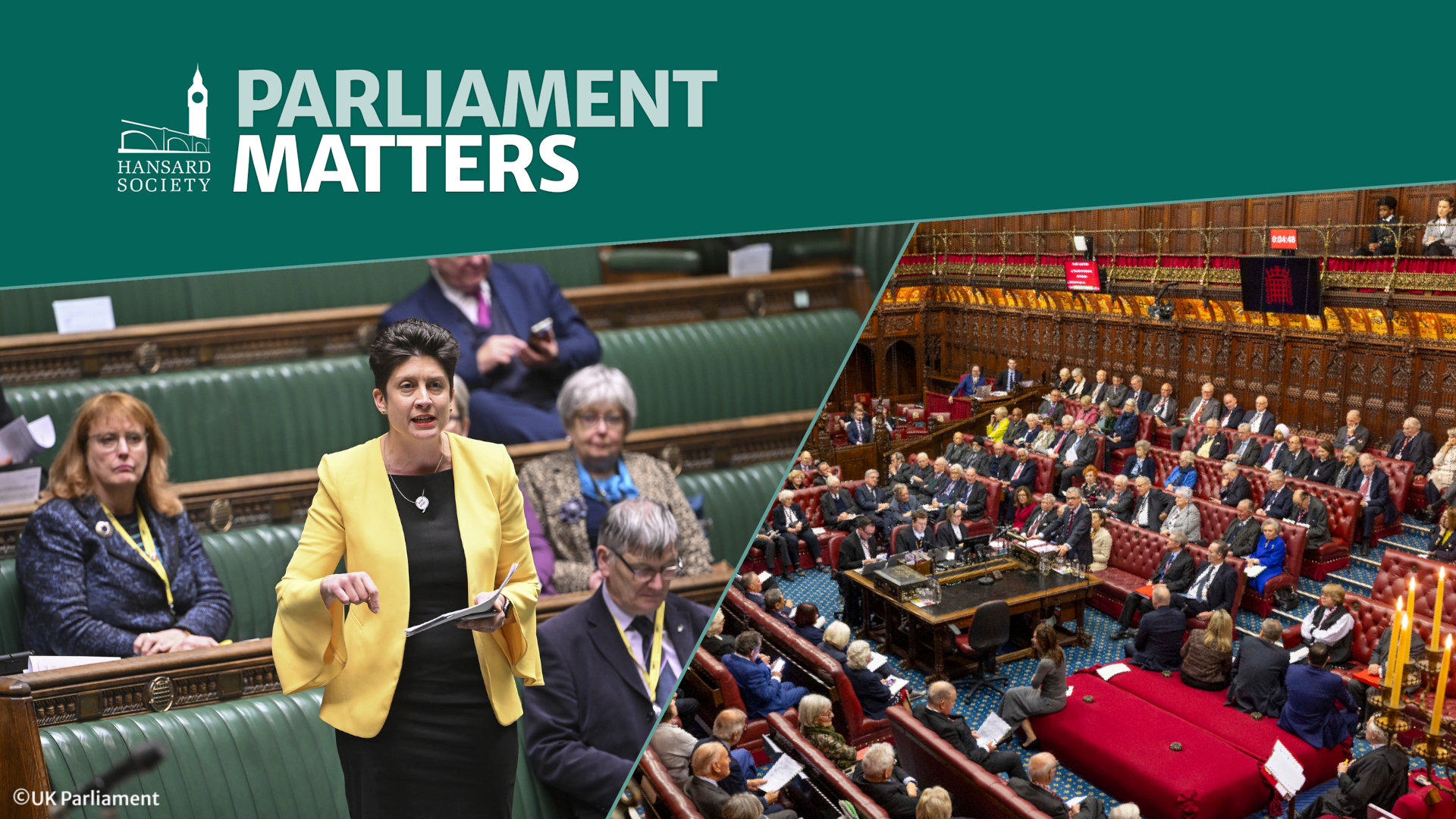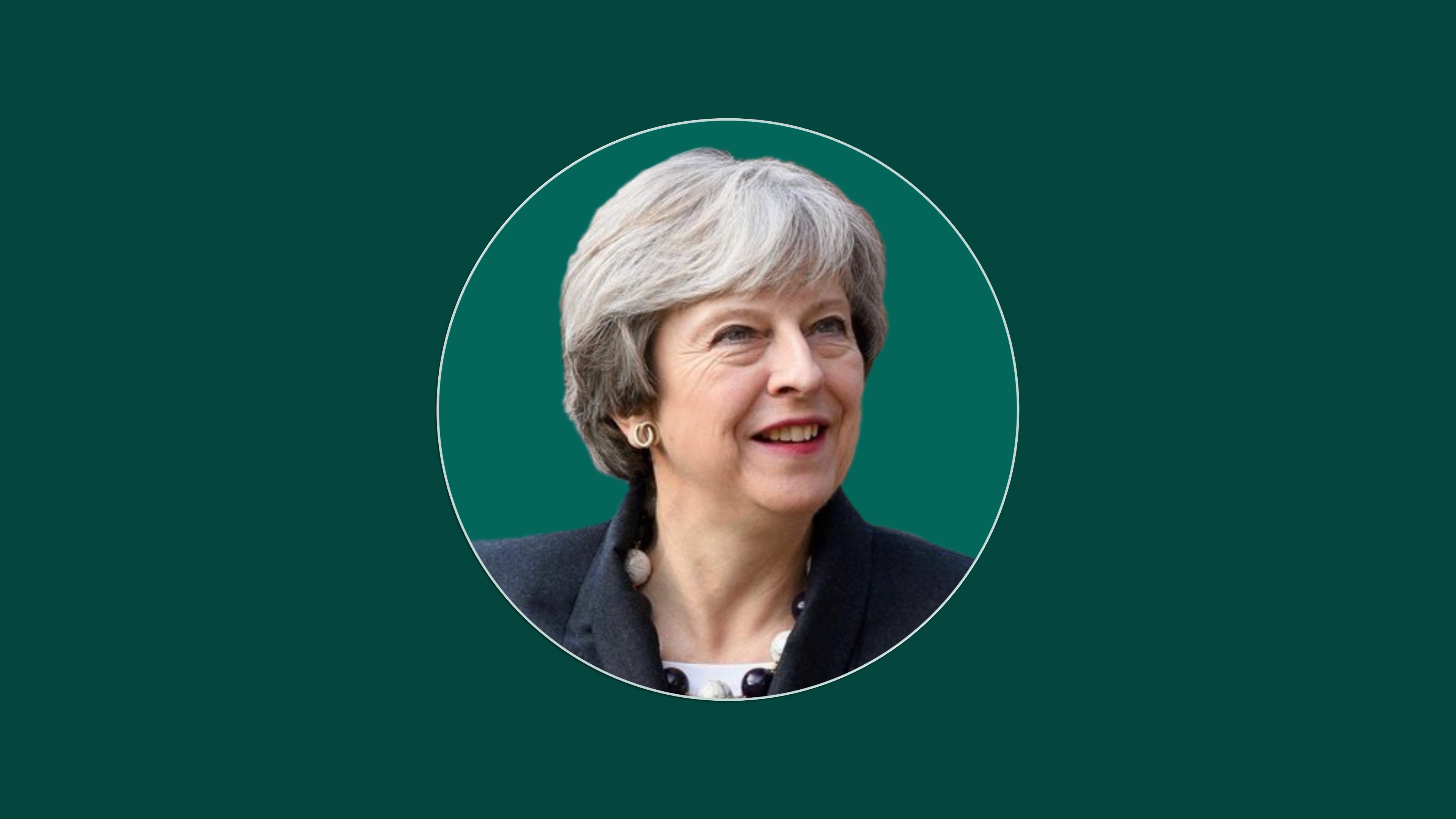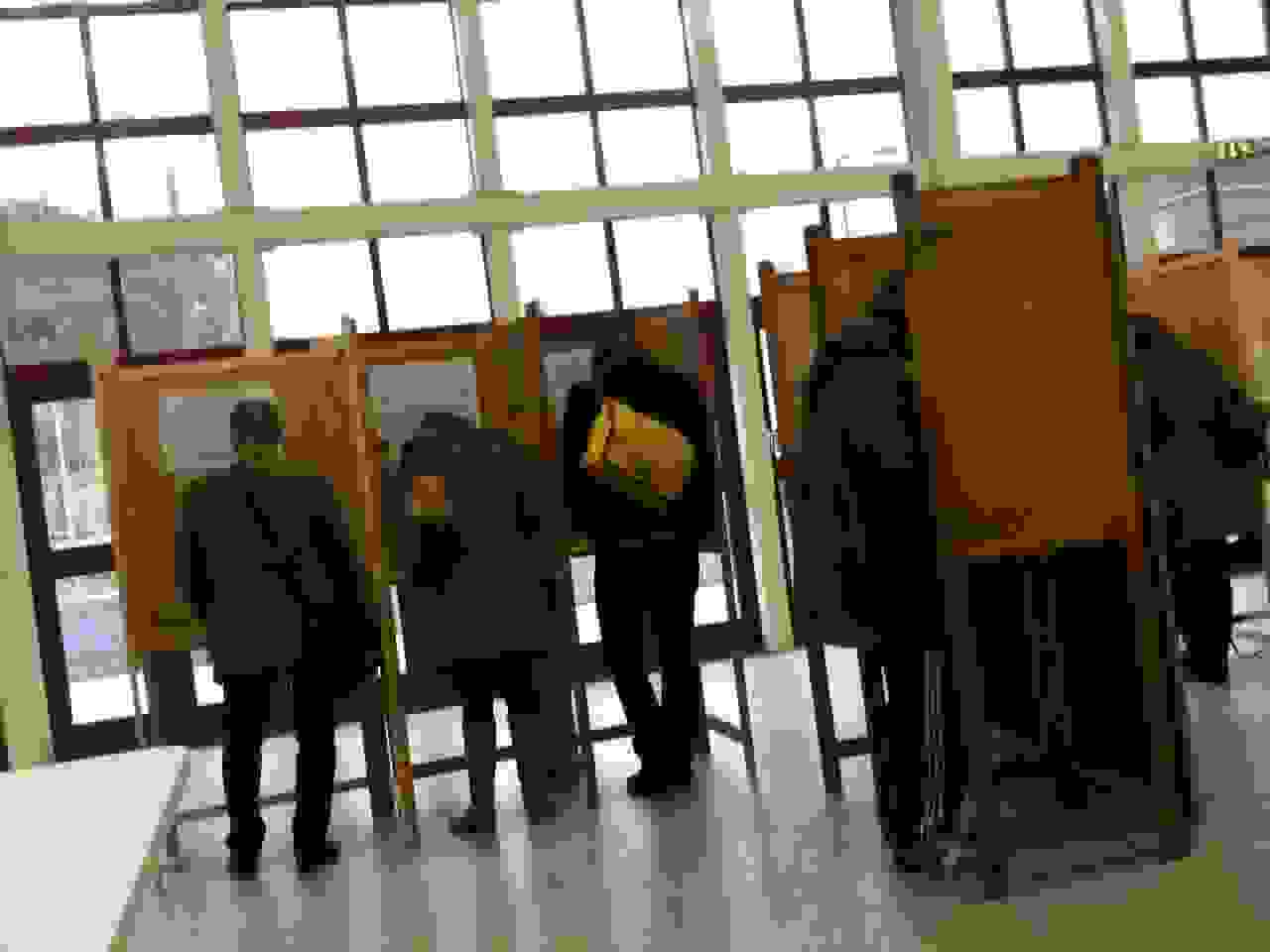Guides / How are Select Committee Chairs elected?
The Chairs of most House of Commons Select Committees are elected by the whole House, by secret ballot, using the Alternative Vote system.


For each Government Department, the House of Commons has a dedicated departmental Select Committee to scrutinise it. But changes to the line-up of Select Committees, to reflect machinery-of-government changes to Departments, do not take place automatically. There is some scope for discretion and negotiation – with, in practice, the Government ultimately deciding whether and how to make changes.
The principle that each Government Department would have a dedicated House of Commons Select Committee to scrutinise it was at the heart of the creation of departmental Select Committees (DSCs) in 1979. It has been set out since then in Standing Order No. 152. The principle means that when a new Government Department is created, or the remit of an existing Department changed, the House of Commons must make changes to its Select Committees so that the Department has a corresponding Select Committee.
However, when the line-up of Government Departments is changed, the process of making corresponding Select Committee changes is not automatic. To create or abolish a Select Committee, or change the name or remit of an existing Committee, the House must amend its Standing Orders. (The motion to do so will in practice be tabled by the Government, and is amendable.) And there is no bar to the House having a line-up of ‘departmental’ Select Committees which does not, in fact, map exactly onto the list of Government Departments: while each Government Department has its own Select Committee, the House may decide to have other Select Committees too.
This means that when the line-up of Government Department changes, there is some scope for discretion and negotiation about the way in which the change is reflected among Select Committees. For example:
when the Department for International Development (DFID) was abolished in 2020, the International Development Committee (IDC) survived (after MPs campaigned successfully to get the Government to abandon its initial plan to abolish it);
the Exiting the EU Committee and its successor, the Committee on the Future Relationship with the EU, similarly existed through to January 2021 after the Department for Exiting the EU (DExEU) was abolished a year earlier; but
There is no deadline, following changes to Government Departments, by which the House must make the corresponding changes to its Select Committees.
When the Government creates a new Department, there are broadly two possible ways of changing the Select Committee line-up to reflect this.
This is achieved by:
The Chairs of most House of Commons Select Committees are elected by the whole House, by secret ballot, using the Alternative Vote system.

having the House agree a motion that “all proceedings of the House” concerning the existing Committee – including the appointment of Members and the election of the Chair – should be understood as applying to the Committee under whatever new name it is to be given; and
amending Standing Orders to change the name and remit of the Committee to reflect the new Department.
The most visible implication of this option is that the Chair and Members of the existing Committee remain in place and there is no election for a new Chair.
Some examples of this process are given in the table below.
Conversions of existing Select Committees into Select Committees for new Government Departments: Some examples, 1997-2023
| Government Department change | Select Committee change | |
|---|---|---|
| Feb-March 2023 | Department for Business and Trade (DBT) created by merging parts of former Department for Business, Energy and Industrial Strategy (BEIS), which was broken up, with Department for International Trade (DIT) | Previous Business, Energy and Industrial Strategy (BEIS) Committee converted into Business and Trade Committee (BTC); International Trade Committee (ITC) abolished |
| Feb-March 2023 | Department for Science, Innovation and Technology (DSIT) created by merging parts of former Department for Business, Energy and Industrial Strategy (BEIS) (including Government Office for Science) with parts of former Department for Digital, Culture, Media and Sport (DMCS) | Previous Science and Technology Committee (STC) (which scrutinised Government Office for Science) converted into Science, Innovation and Technology (SIT) Committee |
| July-Oct 2016 | Department for Business, Energy and Industrial Strategy (BEIS) created by merging former Department for Energy and Climate Change (DECC), which was abolished, with parts of former Department for Business, Innovation and Skills (BIS) | Previous Business, Innovation and Skills (BIS) Committee converted into Business, Energy and Industrial Strategy (BEIS) Committee; Energy and Climate Change Committee abolished |
| June 2009 | Department for Business, Innovation and Skills (BIS) created by merging Department for Business, Enterprise and Regulatory Reform (BERR) with Department of Innovation, Universities and Skills (DIUS) | Previous Business and Enterprise Committee converted into Business, Innovation and Skills (BIS) Committee; previous Innovation, Universities, Science and Skills Committee converted into Science and Technology Committee (STC) (to scrutinise Government Office for Science) |
| May-July 2007 | Ministry of Justice created by merging Department for Constitutional Affairs with parts of Home Office | Previous Constitutional Affairs Committee converted into Justice Committee |
This is achieved by adding the new Committee to the list of departmental Select Committees in Standing Order No. 152.
This option means that Members must be appointed to the new Committee and an election held for its Chair.
The table below gives some instances of new Select Committees being created following the creation of new Government Departments.
New Select Committees created following the creation of new Government Departments: Some examples, 1997-2023
| New Government Department or other innovation | New Select Committee | |
|---|---|---|
| Feb-March 2023 | Department for Energy Security and Net Zero (DESNZ) (created from energy portfolio of former Department for Business, Energy and Industrial Strategy (BEIS)) | Energy Security and Net Zero |
| July-Oct 2016 | Department for International Trade (DIT) | International Trade Committee (ITC) |
| July-Oct 2016 | Department for Exiting the EU (DExEU) | Committee for Exiting the EU ('Brexit Committee') |
| May-June 2010 | Nick Clegg MP appointed Deputy Prime Minister with responsibility for political and constitutional reform | Political and Constitutional Reform Committee |
| Oct 2008 | Department of Energy and Climate Change (DECC) | Energy and Climate Change |
| May-July 1997 | Department for International Development | International Development Committee (IDC) |
Some Select Committee changes to reflect machinery-of-government changes are uncontroversial – if a Department gains or loses a relatively minor policy area without changing its essential profile, and its name is altered accordingly, it is usually relatively straightforward for the Select Committees to follow suit.
However, sometimes, decisions about departmental Select Committee changes can be politically charged. If a departmental Select Committee is abolished, the Chair loses their position and the additional salary that goes with it. If a new Committee is created without an existing Committee being abolished, the overall number of Committees will rise and an argument may be triggered about which party is entitled to the new chairship. There may also be concerns about the availability of MPs to serve on an additional Committee, and about the extra staffing and other costs involved.
13:15, 24 April 2023
Hansard Society (2023), What happens to Select Committees when Government Departments change? (Hansard Society: London)
The Rwanda Bill has made it over the parliamentary finishing line but not without some last-minute drama. We talk to the SNP’s Alison Thewliss MP about what went on in a small room, behind the Speaker’s Chair, away from the cameras!

To mark the Hansard Society’s 80th anniversary we are launching the Churchill-Attlee Democracy Lecture in honour of our first members, Winston Churchill and Clement Attlee. The inaugural lecture will be given by former Prime Minister the Rt Hon Theresa May MP. This is a fundraising event for our 80th Anniversary Appeal. Date & location: Tuesday 14 May 2024, 7:00-8:15pm, Westminster (venue to be announced) Tickets: £25

With a general election on the horizon there has been a spate of new legislation and regulations to implement changes to the way the election will be run, with consequences for voters and electoral administrators. Parliament has not always had a role in approving these changes. This briefing sets out the core changes to the electoral process that have been implemented since the last general election in 2019, the role that Parliament has played in scrutinising and approving them, and the risks arising from these changes.

The Climate Change Act 2008 established a framework for setting carbon budgets every five years. But the role of Parliament in approving these budgets has been widely criticised, including by the Prime Minister. The Environmental Audit Committee has proposed improvements in the scrutiny process to ensure effective climate action, particularly in the context of the UK’s commitment to achieving 'Net Zero' emissions by 2050. These reforms will significantly alter the way Parliament handles the Seventh Carbon Budget in 2025.

The Government’s flagship Tobacco and Vapes Bill will ban the sale of tobacco to anyone born after 2009. The genesis of the delegated powers in the Bill – dating back a decade - tells an important story about the way in which incomplete policy-making processes are used by Ministers to seek ‘holding’ powers in a Bill, only for that precedent to then be used to justify further, broader powers in subsequent Bills. This ‘creeping’ effect in the legislative process undermines parliamentary scrutiny of ministerial action.

